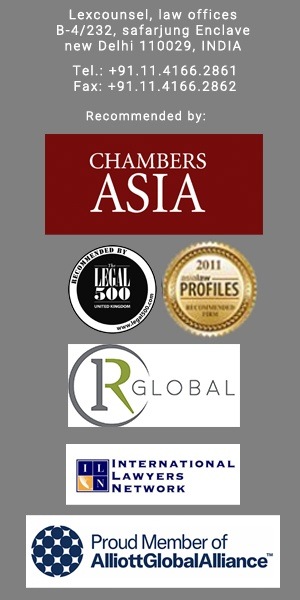
Service Tax Dispute – The Ball is Back in the Supreme Court
If you have questions or would like additional information on the material covered herein, please contact:
The dispute concerning levy of Service Tax on commercial rentals took an interesting turn on Tuesday, December 14, 2010 when the Delhi High Court (“DHC”)…

Service Tax Dispute – The Ball is Back in the Supreme Court
The dispute concerning levy of Service Tax on commercial rentals took an interesting turn on Tuesday, December 14, 2010 when the Delhi High Court (“DHC”) observed that it was bound by its earlier judgment which categorically
held that there could be no service tax in the absence of any services/value addition, and there was no service or value addition in pure renting arrangements.
Hon’ble Chief Justice and Hon’ble Justice Manmohan of the DHC accordingly observed that the DHC was handicapped to decide over the same issue again in any manner different than its earlier judgment. Interestingly, the Supreme Court (“SC”) had on November 19, 2010 requested the DHC to expeditiously dispose off the writ petitions pending before it on the subject.
Initiating the argument on behalf of the lead petitioner, Mr. Harish N. Salve, Senior Advocate, elaborated that in the absence of any value addition (or service) the act of renting per se is not a service.
The DHC noted that the key issue was whether “pure renting” could qualify as a “service”, and the DHC has in its earlier judgment clearly held that pure renting, in absence of any value addition, cannot qualify as a service. To such
an extent, there is a precedent, which the DHC is now bound to follow.
Mr. A.S. Chandihok, ASG, representing the Union of India (“UOI”), argued that a “passing observation” by the DHC in its earlier judgment cannot be a precedent and the issues of relevance now have been decided by a more recent
judgment of the Punjab and Haryana High Court.
The DHC however maintained that the finding of the DHC in its earlier judgment was not a “passing observation” but a “ratio” which is binding on subsequent cases. Since the earlier judgment of the DHC is already under challenge before the SC and most likely, the judgment of the Punjab and Haryana High Court will also be challenged before the SC, it was felt that the Supreme Court could now conclusively adjudicate on the dispute.
The counsels accordingly suggested mentioning the matter and its intricacies, before the SC, and requesting the SC to adjudicate upon it. Mr. Chadhiok however pointed out that the earlier appeal does not involve the question
of constitutional validity of the provisions levying service tax on commercial rentals. Mr. Salve however submitted that the SC could decide all the issues together.
The DHC welcomed the suggestion, and has now listed the matter on January 25, 2011 for further directions, with an understanding that the petitioners and the UOI will in the meantime appear and request the SC to expeditiously
adjudicate the earlier appeal.
It would be interesting to see whether the SC would be inclined to straightaway decide the key issues in the dispute, or would refer the matter back to the DHC with any further directions.
Feedback
Disclaimer: LexCounsel provides this e-update on a complimentary basis solely for informational purposes. It is not intended to constitute, and should not be taken as, legal advice, or a communication intended to solicit or establish any attorney-client relationship between LexCounsel and the reader(s). LexCounsel shall not have any obligations or liabilities towards any acts or omission of any reader(s) consequent to any information contained in this e-newsletter. The readers are advised to consult competent professionals in their own judgment before acting on the basis of any information provided hereby.
